-

Hear from Professor Monica Toft
Learn how Professor Monica Toft is shaping the study of global affairs and diplomacy at Fletcher.
Hear from Prof. Toft -

Explore Fletcher academics in action
Fletcher Features offers insights, innovation, stories and expertise by scholars.
Get global insights -
Get application tips right from the source
Learn tips, tricks, and behind-the-scenes insights on applying to Fletcher from our admissions counselors.
Hear from Admissions -

Research that the world is talking about
Stay up to date on the latest research, innovation, and thought leadership from our newsroom.
Stay informed -
Meet Fletcherites and their stories
Get to know our vibrant community through news stories highlighting faculty, students, and alumni.
Meet Fletcherites -

Forge your future after Fletcher
Watch to see how Fletcher prepares global thinkers for success across industries.
See the impact -

Global insights and expertise, on demand.
Need a global affairs expert for a timely and insightful take? Fletcher faculty are available for media inquiries.
Get in Touch
2023 Mixed Media List
Winter 2023 List
NONFICTION
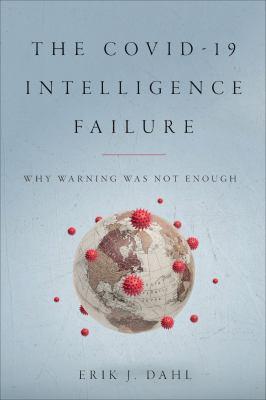
The COVID-19 Intelligence Failure: Why Warning Was Not Enough
For years, epidemiologists and national security experts warned that the world was overdue for a major pandemic, yet somehow the United States and other countries still were not sufficiently prepared when COVID hit. In this second book from U.S. Naval Postgraduate School associate professor Erik Dahl, F04, F08, this global intelligence failure is laid bare, from the late and insufficient warnings about the threat to “the Trump administration’s political aversion to scientific advice.” It puts the pandemic in context by comparing it with similar failures outlined in Dahl’s well-received previous book, Intelligence and Surprise Attack: Failure and Success from Pearl Harbor to 9/11 and Beyond, and warns that we need to learn the lessons of this crisis to steel ourselves for even worse threats in the future.
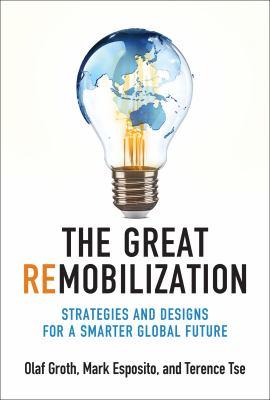
The Great Remobilization: Strategies and Designs for a Smarter Global Future
Olaf Groth, F95, FG97, and co-authors Mark Esposito and Terence Tse offer a framework to identify and seize opportunities to create a better global “operating system.” This new OS, they believe, will help the world cope with economic upheavals caused by what they call the Five Cs: COVID-19 and CRISPR, cognitive technologies (like AI and crypto), cybersecurity, climate change and carbon management, and China’s increasing geopolitical power. Achieving the authors’ goal—to “promote agency, equity, sustainability, resilience, and greater welfare”—starts with recognizing that the traditional, centralized, top-down governance approach of the post-World War II globalization paradigm has run its course and needs to be balanced with innovative designs for “Global 2.0." Leaders across private and public sectors, they write, “need to become design activists who are willing to tear down what’s not working, apply zeroth principles thinking to see new hybrid digital-physical building blocks and then build forward new global systems that can do justice to the complexity of today and tomorrow.” A tall order, but they make a strong case, including a scenario narrative on how it might happen.

From Black Gold to Frozen Gas: How Qatar Became an Energy Superpower
Part of a series from the Center on Global Energy Policy at Columbia University, this historical analysis by Anne-Marie Johnson, F86, and Michael D. Tusiani looks at how Qatar went from being an impoverished, barren backwater at the beginning of the 20th century to the global heavyweight it is today, exporting more liquefied natural gas than any other country in the world. Johnson is a journalist who has covered energy in the Middle East for three decades, which helps to make this book a must-read for anyone seeking to understand the inter- and intrastate politics of energy or the development and likely future of the Middle East on the world stage.

Weaponizing Water: Water Stress & Islamic Extremist Violence in Africa & the Middle East
The roots of violent Islamic extremism are many and varied, but one source of discord that is often overlooked is water, an increasingly scarce and increasingly coveted resource in Africa and the Middle East. In this concisely written account, Marcus D. King, F00, F08, a professor of practice in environmental and international affairs at Georgetown University, examines how “issues that are adjacent to environmental degradation...pertain to the roots of the larger conflict.” He uncovers how ISIS in Syria and Iraq, Boko Haram in Nigeria, and al-Shabaab in Somalia have weaponized water to achieve their political goals, upending a long global history of hydrodiplomacy even in times of war.
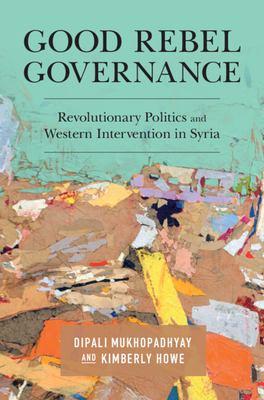
Good Rebel Governance: Revolutionary Politics and Western Intervention in Syria
As the mass uprisings against Syria’s ruling Assad family in 2011 became a full-out civil war, the United States and its allies began a push for democracy and “good governance” by supporting the rebels, sanctioning the state, gathering intelligence, and, since 2017, taking direct miliary action. The Assads have so far prevailed, but the country remains broken. This examination of insurgent rule, by Dipali Mukhopadhyay, F05, FG11, an associate professor at the University of Minnesota, and Kimberly Howe, F07, FG12, a research director at the Feinstein International Center at Tufts, considers how governing authority arises and evolves, particularly how it shapes and is shaped by social relations, and whether associated institutions can be cultivated through foreign intervention. In doing so, the authors argue, the book “tests the long-standing precepts that have undergirded Western promotion of democracy abroad.”

Foreign Aid: Policy and Practice
Phyllis R. Pomerantz, J74, F75, F78, a professor emerita of public policy at the Duke Center for International Development at Duke University and a former agriculture, rural development, and infrastructure expert at the World Bank, here argues that the changing international context and multiple crises of recent years—climate change, war, financial turmoil, and COVID-19—point to the need for “more robust and sustainable results” from foreign aid. Even readers new to the topic will be able to follow this clearly written, comprehensive summary of the history and players, principles and policies, and controversies and trends that inform the debate.
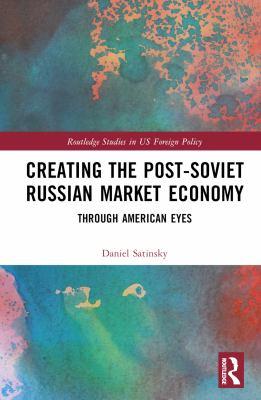
Creating the Post-Soviet Russian Economy: Through American Eyes
This highly readable overview of post-Soviet Russia by attorney Daniel Satinsky, F90, provides a unique perspective through in-depth interviews with American consultants, businesspeople, and “citizen diplomats” who were involved there just before and during the period of relative political, economic, and cultural freedom advanced by Mikhail Gorbachev and Boris Yeltsin. The book begins with the 1980s but focuses primarily on the 1990s and the profound impact of Americans and other foreigners in the creation of the emerging Russian market economy. It describes U.S. government and private aid programs and the creation of new sectors of the economy in capital markets, real estate, media, and the service industry that brought dramatic changes in everyday Russian life and provides helpful background information to understand today’s Russia.

Arguments over Genocide: The War of Words in the Congress and the Supreme Court over Cherokee Removal
DePaul University instructor Steven J. Schwartzberg, F87, ably outlines the legal arguments of proponents and opponents of the Indian Removal Act of 1830, which he describes as an effort, wrongfully supported by the Supreme Court, to subordinate sovereign Native American nations in violation of the Constitution. That effort led to the brutal Trail of Tears, on which thousands of displaced Indigenous people died after being forced from their ancestral communities—an outcome that Schwartzberg argues constituted genocide. The debate in the 1830s, and the fact that advocates for forced displacement prevailed, marked a turning point that still reverberates today, both in Washington’s dealings with Indigenous peoples and in American law, politics, and culture.

Challenging Conceptions: Children Born of Wartime Rape and Sexual Exploitation
The genesis of this volume was a May 2018 workshop at Fletcher that aimed to rethink assumptions about children born of war. Co-edited by three women with Fletcher connections—Associate Professor Kimberly Theidon, Research Professor Dyan Mazurana, and Ph.D. candidate Dipali Anumol—the book tackles this difficult, often overlooked subject by bringing together 15 essays that examine issues like the role of children born of war and postwar “national rebirth,” the children’s perceptions of their missing fathers, and the role of spirituality in accepting such children.

Dying by the Sword: The Militarization of U.S. Foreign Policy
Monica Duffy Toft, academic dean and a professor of international politics at The Fletcher School and director of the Center for Strategic Studies, and co-author Sidita Kushi, a former research director at the center, analyze America’s various roles overseas in this examination of statecraft and diplomacy that begins with the country’s founding. Drawing on a dataset compiled through the center’s Military Intervention Project, the authors show that since 9/11 the U.S. has switched to a “force first” approach to foreign policy, increasing military interventions at the expense of other forms of engagement. Toft recently discussed the book in a Tufts Now interview.
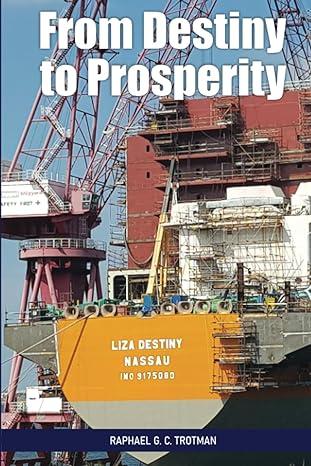
From Destiny to Prosperity
In 2016, Guyanese lawyer and politician Raphael G. C. Trotman, F02, then the minister of natural resources in his country, shepherded a controversial agreement through which ExxonMobil paid Guyana a one-time fee of $18 million. The payment turned out to be the source of “relentless torrents of criticism, vitriol, untruths, half-truths and downright nastiness,” according to Trotman. This book outlines the facts as he saw them and explains how he and his government colleagues hoped the agreement would help cast off “the dark shadow of Venezuela’s continuous and mounting threats” to neighboring Guyana. “Guyana will be vindicated,” Trotman writes, “and the people will be able to live happily and peacefully.”
Video

Spy/Master
Co-created by Adina Sădeanu, F07, a Transylvania-born screenwriter, producer, and former journalist, this riveting six-episode series (available on Max) opens on the day the Romanian double agent Victor Godeanu walks into the American embassy in Bonn to request asylum from an astonished CIA officer. Godeanu, the fictional right-hand man to the real-life communist dictator Nicolae Ceaușescu, has spent the past decade and a half secretly spying on his homeland for the KGB. Once he’s tipped off that Romanian intelligence has “made” him, he starts sweating, worried about being nabbed by the famously unforgiving Ceaușescu while simultaneously wishing to avoid being sent by the Russians to Moscow, where he probably wouldn’t fare much better.
Summer 2023 List
Fiction

Halcyon
In this novel of ideas from the best-selling author and National Book Award finalist Elliot Ackerman, A02, F03, Al Gore is president, but “our current plague of polarization” in still in full swing. The theme of political divisions figures into one of the novel’s plot lines through the work of narrator Martin Neumann, a Civil War historian who studies the role of compromise in American life. Another narrative thread centers on the toppling of Confederate monuments, and a third on the power that men have traditionally had over women. These streams all come together in the biggest news story of the day: Scientists have conquered death. When Neumann discovers his landlord, the famous litigator Robert Ableson, was resurrected a year ago, he is drawn into other Ableson family secrets and a troubling look at the question of “time and who owns it.”
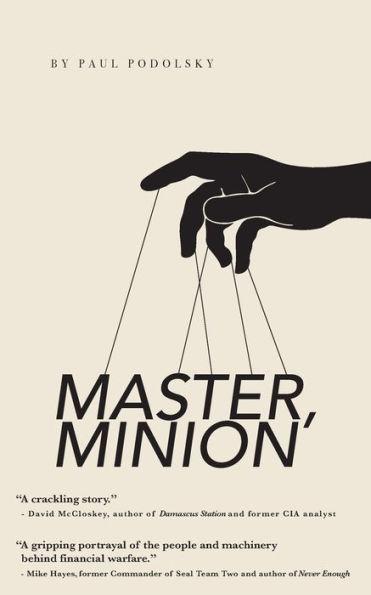
Master, Minion
With a cast of characters that runs to almost two pages, this second book from podcaster and former financial strategist Paul Podolsky, F96, is an intricate fictional whodunnit—or, more accurately, whodunwhat—set in the ruthless world of hedge fund billionaires and Russian bureaucrats. Fast paced and entertainingly written, the story starts as narrator Nick Burns gets an email from his boss (known only as “the Boss”) that tells him he must return from vacation to find the cracks in the financial system revealed by the murder of a Russian banker. Even as Nick spirals around the rabbit hole of corruption, violence, secret police, and the geopolitical manipulation of financial markets, he must attend to the two most important women in his life—his mother and Lola, a Hong Kong academic he loves who gets caught up in his drama. Suspense, scheming, and sentiment: Podolsky may just be a Tom Clancy for a new era.
Nonfiction

Human Rights at the Intersections: Transformation through Local, Global, and Cosmopolitan Challenges
Anthony Tirado Chase, F95, F00, co-edited this open-access collection of essays that came about because human rights “are on the defensive and need to be reinvented,” as international human rights lawyer César Rodríguez-Garavito writes in the book’s foreword. Existential challenges to global human rights—including what the Israeli historian Yuval Harari called “religious biases and human tyrants...consumerist excesses and technological utopias”—are on the rise, and the activists and scholars writing here argue that traditional ways of addressing those challenges are no longer working. They propose instead reimagining the work of supporting human rights with interdisciplinary nonstate and substate approaches that engage with debates on localism, cosmopolitanism, gender, and sexuality.
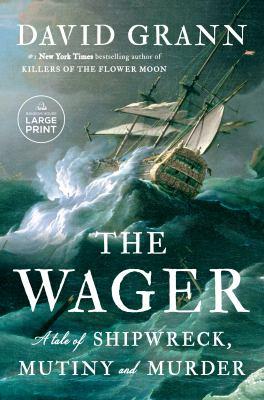
The Wager: A Tale of Shipwreck, Mutiny, and Murder
New Yorker staff writer David Grann, F92, author of the bestsellers The Lost City of Z and Killers of the Flower Moon, has penned another can’t-put-down history that reads like fiction. This time his topic is the 1741 wreck of the HMS Wager on a deserted island off the coast of Chile and the surviving crew’s subsequent Lord of the Flies–like descent into savagery and mutiny. Grann recounts not only the harrowing shipwreck and its aftermath but also the battle between competing accounts of what happened—what he has called “the 18th century version of fake news.” Grann recently discussed the book in an interview on Tufts Now.
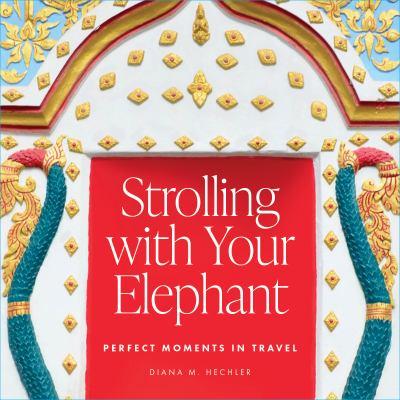
Strolling with Your Elephant: Perfect Moments in Travel
Few travelogues exhibit the breadth of locations represented in this series of short essays by travel agent and consultant Diana M. Hechler, F87. Rather than recalling her own adventures in the first person, Hechler gives readers an expert’s take on hidden gems and don’t-miss experiences in 31 destinations from Australia to Wales. Inviting color photographs separate the sections, which include many surprises. Who would have considered test driving a Land Rover in England, riding in a zeppelin in Germany, or petting a tranquilized rhino as vets attend to it in South Africa? But these activities are right there beside more common tourist experiences like jet-boating in New Zealand, whale-watching in Vancouver, and ghost-touring Charleston, SC. It’s like a Choose Your Own Adventure game come to life.
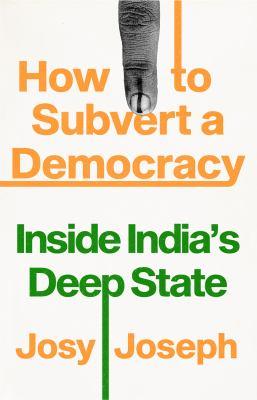
How to Subvert a Democracy: A History of India’s Deep State
Released in India under the title The Silent Coup: Inside India’s Deep State, this elegantly written exposé by investigative journalist Josy Joseph, F07, begins with a brief recounting of what could seem an isolated incident: a criminal “Indian business family” fleeing the country and the subsequent harassment of the whistleblower who brought their misdeeds to light. But this story quickly grows into an examination of how to manage the sprawling security establishment—made up of “a loose network of organisations such as the military, state police forces, paramilitaries, and the intelligence and investigation agencies”—meant to protect the world’s largest democracy, not to become a tool for subversion by the ruling elite. Joseph argues convincingly that the 2014 election of Prime Minister Narendra Modi is both a symptom and a cause of the “dramatic decline in India’s democratic standards.”
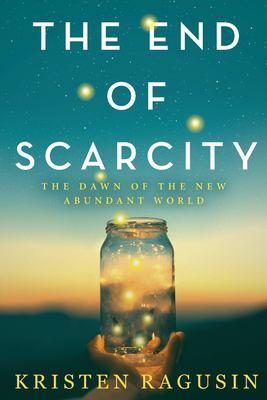
The End of Scarcity: The Dawn of the New Abundant World
In this Amazon bestseller, Kristen Ragusin, F07, a wealth management consultant and certified digital currency professional, delivers a conversational take on the money-go-round that shows how debt underpins our entire financial system. This is a root cause of extreme competition that “progressively leaves more people out of the race,” she writes, while leaving a small group holding power over “how much our mortgage or car will cost, whether jobs exist and what the stock market will do.” Bringing together economic theory, philosophy, history, and more in simple, easily understandable ways, Ragusin considers what can be done to see through the illusions created by such unsustainable practices and create a “money revolution” that can lead to abundance for all. Utopian thinking, perhaps, but still, the book is a good primer on how the world really works.

Age of Danger: Keeping America Safe in an Era of New Superpowers, New Weapons, and New Threats
Timely and incisive, this examination of America’s national security machine asks why it so often fails in its mandate to keep the country safe not only from military threats and terrorism but also from pandemics, cyberattacks, and the extreme weather caused by climate change, despite costing taxpayers $1 trillion annually. Co-authored by Thom Shanker, F82, assistant Washington editor for The New York Times and director of the Project for Media and National Security at George Washington University, and Rand Corporation research director Andrew Hoehn, the book analyzes how previous incidents were handled, deconstructs the many areas in which known threats are not being adequately contained, and outlines what can be done to change that.
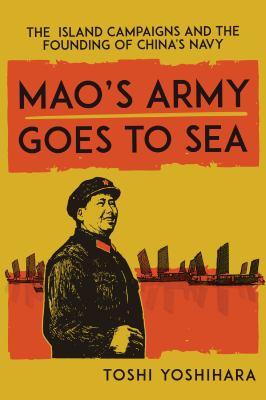
Mao’s Army Goes to Sea: The Island Campaigns and the Founding of China’s Navy
Toshi Yoshihara, F04, a senior fellow at the Center for Strategic and Budgetary Assessments and an adjunct professor at Georgetown University, draws extensively from Chinese language sources in this groundbreaking history. The book examines the earliest naval engagements and amphibious operations by the People’s Liberation Army as it sought to overtake Nationalist resistance on the islands off China’s western coast, from the Shengsi Islands not far from Shanghai to Hainan south of Hong Kong. Capturing this territory was key to entrenching Communist rule, and as Yoshihara shows, China’s current naval engagements and institutional identity are often rooted in these initial mid-20th century experiences, making this must reading for scholars and policymakers.
Music

No More! (No Más!)
This energetic and super-catchy Spanish-language anthem decrying violence against women is the centerpiece of the No More (No Más) awareness and fundraising campaign of the Pa’Arriba Foundation of Ecuador, whose founder and president, Lisa Markovits, F93, wrote the song. Markovits and an Ecuadorian hip hop artist sing backup vocals for lead singer Eka Gordom on the recording. The song refers to everyday examples of misogyny in culture and implores listeners to teach their boys not to abuse women and their girls not to put up with it. A compelling message—and be warned, even if you don’t speak Spanish, once you hear this song, you may not be able to get it out of your head.

